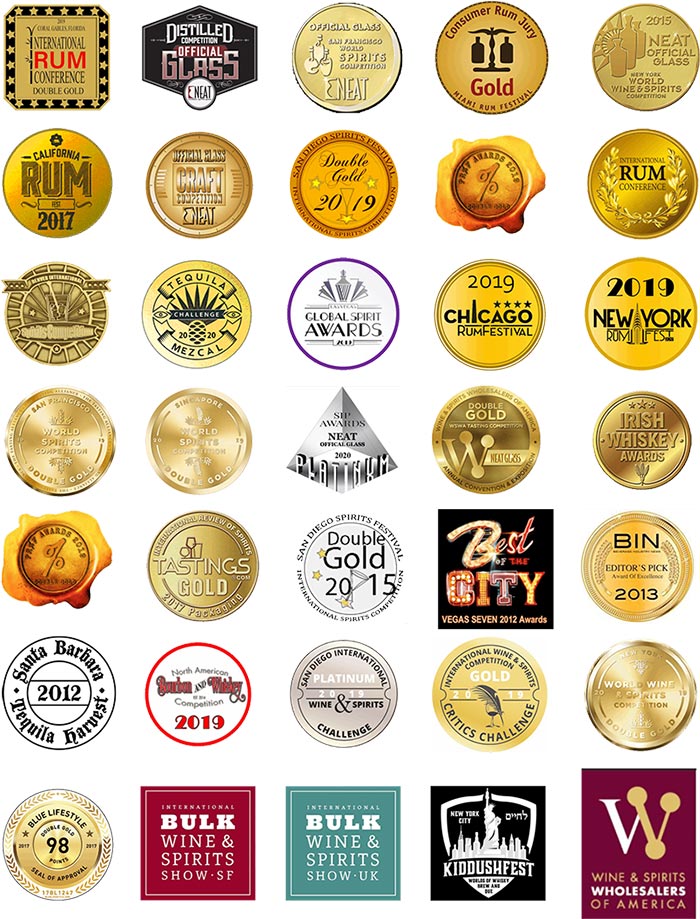Official Spirits Glass of Major Discerning Competitions:
San Francisco World Spirits ● New York World Spirits Competition● WSWA Orlando & Las Vegas ● Consumer Rum Jury Miami Rum Fest ● SIP Awards, ● San Diego Spirits Festival ● San Diego Distilled ● Denver International ● Los Angeles Craft Spirits ● SF Rum Fest ● Chicago Rum Fest ● , NYC Rum Fest ● , Puerto Rico Rum Fest ● North American Bourbon & Whiskey ● SF International Bulk Wine and Spirits ● United States Trade Tasting NYC ● Las Vegas Global Spirit Awards ● Irish Whiskey Awards ● Barcelona Rum Festival ● The Hague Whiskey Festival ● Cigar and Spirits Magazine ● San Diego Spirits Challenge ●,Critics Challenge ●,Sommelier Challenge ● SF Tasting Alliance ● NY Tasting Alliance ● Singapore Tasting Alliance ● PR%F Awards ● UK Whisky Event ● Celtic Connection ● Spirit of Alba, ● Fife ● Tequila Mezcal Challenge ● The International Rum Conference ● Finger Lakes International Spirits ● Sante International Spirits ● Sunset International Spirits ● Craft Distilled Spirits ● John Barleycorn Awards ● CHILLED 100 Spirits Awards ● Global Whisky Challenge Scotland ● Global Whisky Challenge ● Tokyo Global Whisky Challenge ● New York glass (Global and North American)● Monterey Spirits Festival ● East Meets West Wine and Spirits Competition ● North Coast Press Democratic Wine Challenge ● Sunset Magazine Wine Competition, ● The Harvest Challenge ●

The most prestigious spirits competitions realize that nose blindness, temporary anosmia is their worst enemy. By removing the ethanol to the rim of the glass, competitions are able to keep more judges at the table, making good decisions. With tulip glasses, ethanol hinders aroma detection, and specific time limits for judging a flight encourages guessing. In fact, recovery from anosmia requires at least 4 minutes away from the tasting area to give the mucous layer a chance to refresh and wipe out past flavor molecules. See testimonials of leading experts.
Ethanol, however, locks most ORNs (olfactory receptor neurons) out of use, leaving fewer receptors to detect aromas. Competitions which taste 4 or more samples per flight and use tulip glasses place the entrants in a no-win situation. Additionally, it skews the entrants’ chances of receiving an award if they happen to be the last samples in the flight. Tulips are unfair to competition entrants. Check the independent research study which shows NEAT superiority to tulips and snifters. Why do some competitions continue to use tulips? There is one simple answer: Because it is popular among spirits drinkers. Competitions which use tulips don’t care about results or fairness, they care about the revenue stream from entrants.
